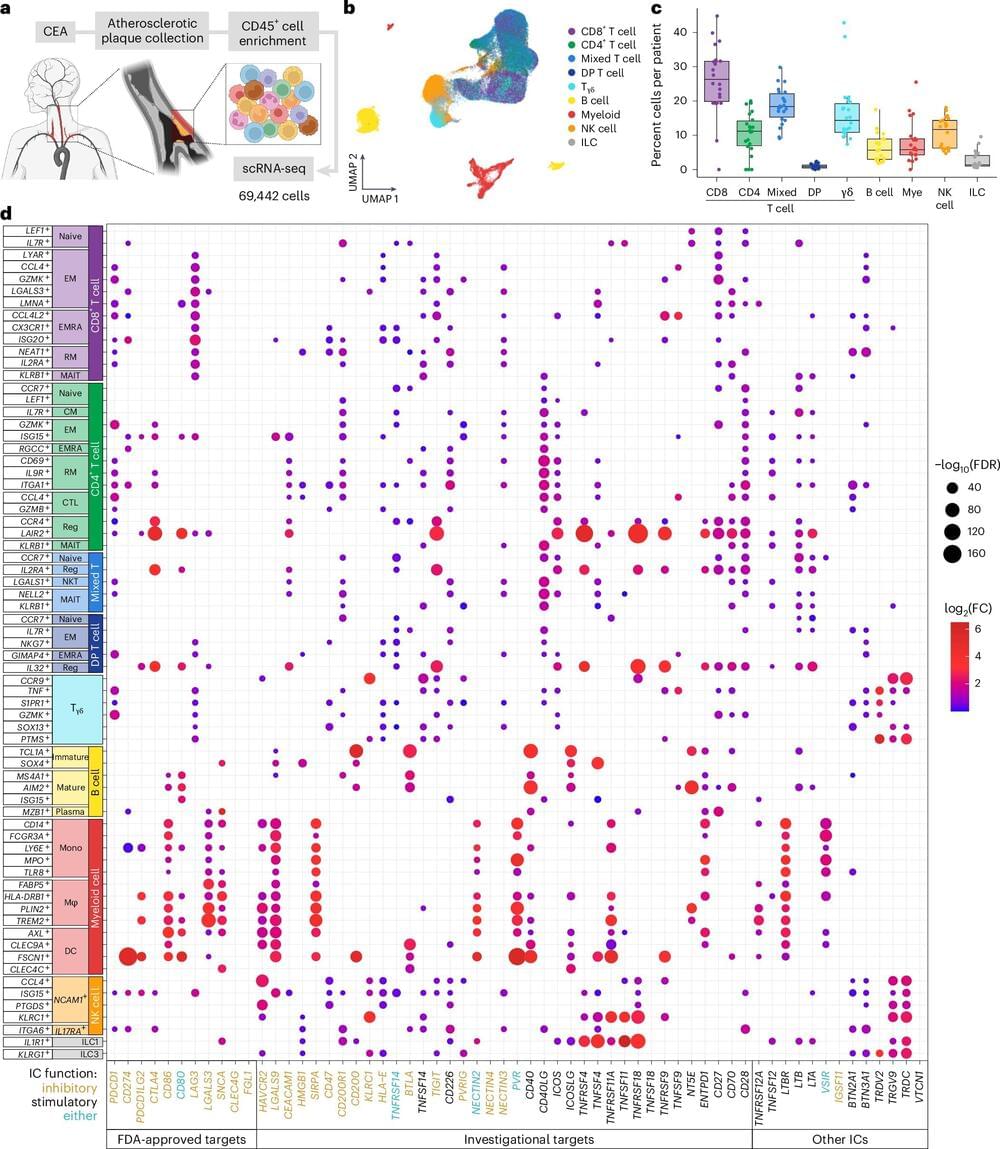A cancer therapy that prompts the body’s immune defenses against viruses and bacteria to attack tumors can make patients more vulnerable to heart attack and stroke. A possible explanation for this side effect is that the treatment interferes with immune regulation in the heart’s largest blood vessels, a new study suggests.
Led by researchers at NYU Langone Health and its Perlmutter Cancer Center, the new work focused on a potent class of cancer-fighting drugs called immune checkpoint inhibitors. These medications work by blocking molecules embedded on the surface of cells—immune checkpoints—which normally serve as “brake pedals” that prevent excess immune activity, or inflammation. Some tumors are known to hijack these checkpoints to weaken the body’s defenses, so by blocking the checkpoints, the treatments enable the immune system to kill tumor cells.
However, this treatment type may also trigger damaging levels of inflammation in the heart, brain, stomach, and other organs, the researchers say. For example, past studies have shown that about 10% of those with atherosclerosis, the buildup of hardened fatty deposits (plaques) within artery walls, have a heart attack or stroke following cancer treatment. However, the specific mechanisms behind this issue had until now remained unclear.
